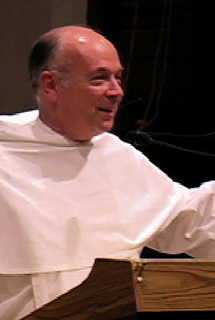Tag: 00 Aquinas 2ndry
Spirituality of St. Thomas Aquinas (Cessario, 2010)
While some categories favored by recent spiritual authors, such as religious experience and community, do not figure as key notions in Aquinas’s writings, both his philosophical and theological treatises provide rich sources of insight about the human experience of transcendence and man’s mystical bond with God. It is customary to identify three strains of mystical teaching that appear in the works of Thomas Aquinas: Being-mysticism, Bridal-mysticism, and Knowledge-mysticism.
The Image of God and the Sacraments of the Church: The Practice of Divine Friendship (Cessario, 2006)
To emphasize the practical dimensions of Aquinas’ doctrine of man in the image of God, I propose to examine the relationship of this doctrine to both the Church’s sacraments and the practice of divine friendship.
Interview with Romanus Cessario (Cessario, 2004)
There are three things that Aquinas can teach theologians at the beginning of the third millennium…First, that theology remains at the service of the Church and therefore is subject to the pleasure of the Roman Pontiff….Second, that the Christian thinker must interest himself in both nature and grace, faith and reason, Church and State….Third and finally, that the Christian thinker himself must live a holy life.
Mel Gibson and Thomas Aquinas: How the Passion Works (Cessario, 2003)
No reviewer to my knowledge has suggested that Mel Gibson read the “Summa Theologiae” before setting about to direct “The Passion of the Christ.” But he must have read Question 48 of the third part of Aquinas’ “Summa.” There, Aquinas examines how the passion of Christ produced its effect — its efficiency, if you will.
Thomas Aquinas: A Doctor For The Ages (Cessario, 1999).
Why should a medieval Catholic priest merit a place among the most important figures of the second millennium? In part because more than seven centuries after his death his writings and teachings still seem fresh and-more importantly-true. His genius as a thinker and teacher has led thousands of scholars to carry on the intellectual projects and hand on the teachings in philosophy and theology of this thirteenth-century Neapolitan Dominican friar


